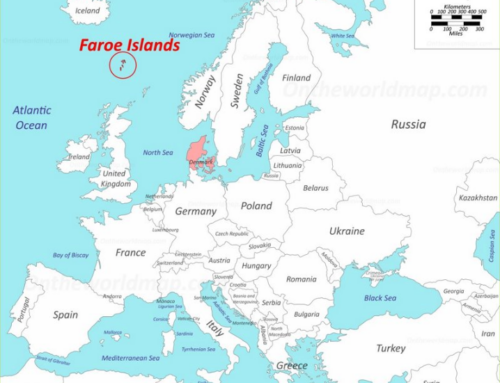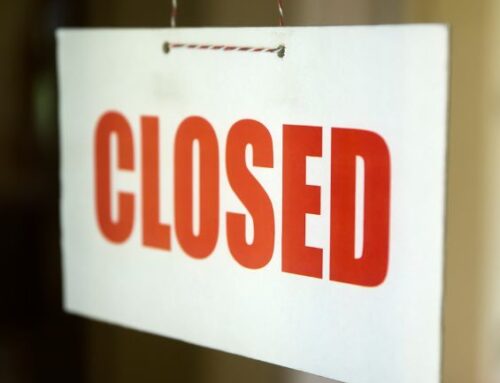Rory Leishman:
 It was on June 24, 2022, that the Supreme Court of the United States released its judgment in Dobbs v. Jackson that overturned Roe v. Wade, the calamitous 1973 ruling which alleged that women have a fundamental constitutional right to abortion. At the time, Dobbs was widely regarded as the greatest triumph for the pro-life movement in 50 years, yet, in the meantime, as readers of The Interim are painfully aware, the number of abortions in the United States has increased and the pro-life position has been rejected in one state referendum on abortion after another.
It was on June 24, 2022, that the Supreme Court of the United States released its judgment in Dobbs v. Jackson that overturned Roe v. Wade, the calamitous 1973 ruling which alleged that women have a fundamental constitutional right to abortion. At the time, Dobbs was widely regarded as the greatest triumph for the pro-life movement in 50 years, yet, in the meantime, as readers of The Interim are painfully aware, the number of abortions in the United States has increased and the pro-life position has been rejected in one state referendum on abortion after another.
Now, matters are about to get worse, given that former Republican president Donald Trump has betrayed the pro-life cause and Vice President Kamala Harris is the most extreme advocate of abortion on demand ever to gain her party’s nomination for the presidency. Her running mate, Tim Walz, is no less of an abortion extremist. As governor of Minnesota, he slashed funding for crisis pregnancy centres and signed into law a bill authorizing health-care workers to commit infanticide by deliberately withholding life-saving medical treatment from babies who were born alive after a botched abortion.
What should pro-lifers conclude from these devastating setbacks? Was Dobbs wrongly decided?
Some eminent pro-lifers think so. For example, Robert P. George, McCormick Professor of Jurisprudence at Princeton University, and Hadley Arkes, Ney Professor of Jurisprudence Emeritus at Amherst College, argue that the Court in Dobbs should not just have reversed Roe, but also struck down every law permitting abortion because the unborn are persons with a right to life guaranteed by the Fourteenth Amendment to the United States Constitution.
The late Justice Antonin Scalia likewise acknowledged that the unborn are persons with an inalienable right to life, but he insisted that it was up to elected legislators, not judges, to enact that right into law. In his view, for the Court to read a non-existent ban on abortion into the Fourteenth Amendment would be no less illegitimate than the decision of the Court in Roe to read a non-existent right to abortion into that same clause.
In conformity with the separation of legislative and judicial powers, Scalia maintained that judges should stick to fulfilling their sworn obligation to uphold the plain words of the Constitution as originally understood. On this basis, he had no difficulty in concluding that the Constitution sanctions the death penalty and that Roe was wrongly decided. “The death penalty? Give me a break. It’s easy,” he said. “Abortion? Absolutely easy. Nobody ever thought the Constitution prevented restrictions on abortion.”
Scalia would certainly have joined with the majority in Dobbs. Suppose, though, that, in Dobbs, the Court had decided to take the advice of George, Arkes and others to strike down all state laws permitting abortion.
It does not take much imagination to grasp the calamitous consequences. Riding a tide of national outrage, triumphant Democrats would have packed the Supreme Court with “pro-choice” judges who could be counted upon to reverse Dobbs and abandon the rule of law by ratifying whatever arbitrary decrees a President Harris might issue on abortion or anything else.
That would spell the end of liberal democracy in the United States. But that is of small concern to some intellectuals: Citing systematic violations of the right to life, they maintain that liberal democracy has already failed in the United States, Canada, and virtually all other democracies. But what is the alternative? Would these critics have the military impose some supposedly benign dictator who solemnly promises to promote the common good?
Sir Winston Churchill was right: “Many forms of Government have been tried, and will be tried in this world of sin and woe. No one pretends that democracy is perfect or all-wise. Indeed, it has been said that democracy is the worst form of Government except for all those other forms that have been tried from time to time.”
For pro-lifers, there is no judicial short-cut to victory. But there is also no reason for despair. Writing in the October issue of First Things, Ryan T. Anderson observes: “Over the past few months, children have been born, and some have celebrated their birthdays, because Dobbs allowed their states to provide them with legal protections against the lethal violence of abortion. Some of these little ones are already walking, talking, and giggling, thanks to fifty years of work by pro-life activists.”
That work must continue: Confident that the truth will ultimately prevail, pro-lifers must never flag or fail in their duty to go on patiently campaigning to win over a majority of their fellow citizens to a clear understanding of the truth that all human life is sacred from conception to natural death.




